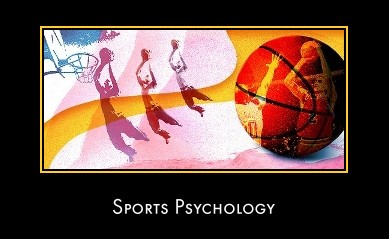Sports Psychology

(Photo Credit: Davi Sommerfeld)
What is Sports Psychology?
Sports psychology is a subfield of psychology that focuses on the mental and emotional aspects of sports and physical activity. It aims to understand how psychological factors influence athletic performance, exercise, and physical activity, and conversely, how participation in these activities affects psychological well-being and development.
Definition and Scope
Sports psychology encompasses a broad range of topics, including but not limited to motivation, performance enhancement, mental resilience, coping strategies, team dynamics, and the psychological impact of injury. The field applies psychological principles to help athletes achieve optimal performance and enjoyment from their sports experience.
History and Development
The roots of sports psychology can be traced back to the early 20th century, with the establishment of the first sports psychology laboratory by Dr. Carl Diem in Germany in the 1920s. The field gained more recognition in the 1960s and 1970s, particularly with the formation of professional organizations such as the International Society of Sport Psychology (ISSP) and the North American Society for the Psychology of Sport and Physical Activity (NASPSPA).
Key Concepts in Sports Psychology
1. Motivation:
Motivation is a central theme in sports psychology. It involves understanding what drives athletes to train, compete, and achieve their goals. Theories such as self-determination theory (Deci & Ryan, 1985) highlight the importance of intrinsic motivation, where athletes are driven by internal rewards such as personal growth and enjoyment, and extrinsic motivation, driven by external rewards like trophies and recognition.
2. Performance Enhancement:
Sports psychologists work with athletes to develop mental skills that can enhance performance. Techniques such as goal setting, visualization, and self-talk are commonly used. For instance, a meta-analysis by Weinberg and Gould (2015) found that goal setting significantly improved performance in a variety of sports.
3. Mental Resilience:
Building mental resilience is crucial for athletes to handle the pressures of competition and setbacks. Studies have shown that resilience training can improve an athlete's ability to cope with stress and maintain performance under pressure (Fletcher & Sarkar, 2012).
4. Coping Strategies:
Athletes face numerous stressors, including performance anxiety, injury, and balancing sport with other life demands. Sports psychologists help athletes develop coping strategies to manage these challenges effectively. Research by Nicholls and Polman (2007) has shown that effective coping strategies can enhance athletic performance and overall well-being.
5. Team Dynamics:
Understanding group behavior and team dynamics is vital in sports psychology. Concepts such as team cohesion, communication, and leadership are explored to optimize team performance. Carron, Bray, and Eys (2002) found that team cohesion is positively correlated with team success in various sports.
Applications of Sports Psychology
Sports psychology is applied in diverse settings, including:
- Professional and Amateur Sports: Helping athletes improve performance, overcome mental barriers, and achieve their goals.
- Youth Sports: Promoting positive psychological development and lifelong participation in physical activity.
- Rehabilitation: Assisting injured athletes in coping with the psychological impact of injury and the recovery process.
- Exercise and Fitness: Encouraging adherence to exercise programs and enhancing the psychological benefits of physical activity.
Future Directions
The field of sports psychology continues to evolve, with emerging research focusing on areas such as:
- Technology in Sports Psychology: The use of biofeedback, virtual reality, and mobile apps to enhance mental training and performance.
- Cultural Competence: Understanding and addressing the unique psychological needs of athletes from diverse cultural backgrounds.
- Mental Health Awareness: Increasing recognition of the importance of mental health in sports and integrating mental health support into athletic programs.
Conclusion
Sports psychology is a dynamic and interdisciplinary field that plays a critical role in the world of sports. By applying psychological principles and techniques, sports psychologists help athletes improve performance, enhance well-being, and achieve personal and professional growth. As the field continues to expand, it will undoubtedly contribute to the success and fulfillment of athletes at all levels.
References
Carron, A. V., Bray, S. R., & Eys, M. A. (2002). Team cohesion and team success in sport. Journal of Sports Sciences, 20(2), 119-126.
Deci, E. L., & Ryan, R. M. (1985). Intrinsic motivation and self-determination in human behavior. Springer.
Fletcher, D., & Sarkar, M. (2012). A grounded theory of psychological resilience in Olympic champions. Psychology of Sport and Exercise, 13(5), 669-678.
Nicholls, A. R., & Polman, R. C. (2007). Coping in sport: A systematic review. Journal of Sports Sciences, 25(1), 11-31.
Weinberg, R. S., & Gould, D. (2015). Foundations of Sport and Exercise Psychology. Human Kinetics.
By incorporating these principles and evidence-based practices, athletes and coaches can harness the power of sports psychology to achieve greater success and fulfillment in their sports endeavors.
Learn About Sports Psychology
Founded in 1986, the Association for Applied Sport Psychology (AASP) promotes the ethical practice, science, and advocacy of sport and exercise psychology. the association website has an excellent resource center where visitors can read articles and obtain information on a variety of sports-psychology topics.
You can visit the AASP website homepage by Clicking Here
Click Here to read an excellent collection of articles around sports psychology and sports psychologists from the British Psychological Society
The Combat Sport Psychology Blog is an excellent blog written and hosted by University Professor and Certified Sport Psychologist Dr. Randy Borum. Although the emphasis of the blog is on applying sport-psychology to martial arts and combat sports visitors will find many of the informative articles of general sports-psychology interest.
Click Here To Check Out The Combat Sport Psychology Blog.
Three Myths About Sports-Psychology
Dr. Patrick Cohn, introduces sports-psychology and the myths about working with a mental game coach.
Recommended Reading
The updated edition of Advances in Sport Psychology offers a view of the latest research in the field of sport psychology. The text is written by 34 of the field's most prolific researchers and scholars, including Maureen Weiss, Shane Murphy, and Albert Carron. These contributors extend the boundaries that have defined the field and provide a clear direction for future research.
The book is divided into four parts. Part I offers a comprehensive introduction to the field, including definitions, history, and research paradigms and methodologies. Part II explores individual characteristics that affect sport participants' behavior, including self-perceptions, attributional patterns and perceptions of control, motivational orientations, and achievement goal perspectives. Part III explores socioenvironmental factors that affect sport participants' behaviors. Part IV delves into the research and theory concerning intervention techniques used for enhancing performance and modifying athletes' behaviors, including imagery and mental rehearsal, attentional processes, goal setting, and flow and peak performance.
The book also offers a new and thorough understanding of where sport psychology has been, where it is now, and where it is headed. This text will help students prepare and conduct their own research, and it will be a great reference for professionals who want to stay on the cutting-edge of the field.
See following link for more details:
Recent Articles
-
Psychology Articles by David Webb
Jan 26, 26 04:52 AM
Discover psychology articles by David Webb, featuring science-based insights into why we think, feel, and behave the way we do. -
Why Doing Nothing Feels So Hard | Psychology of the Restless Mind
Jan 26, 26 04:42 AM
Why does doing nothing feel uncomfortable? Psychology research reveals how attention, the default mode network, and unstructured thought shape inner restlessness. -
Online Psychologist Australia: 7 Benefits of Choosing Online Therapy
Jan 22, 26 03:26 PM
Discover 7 key benefits of choosing an online psychologist in Australia, from better access and privacy to flexible scheduling and continuity of care.
Know someone who would Like To Learn About Sports Psychology?
Share This Page With Them
Go From Sports Psychology Back To The Home Page


